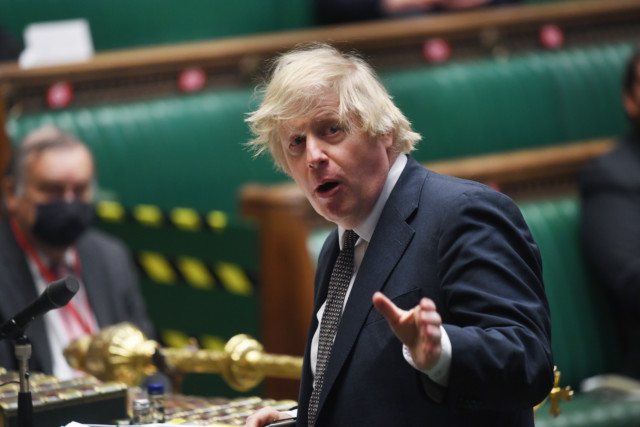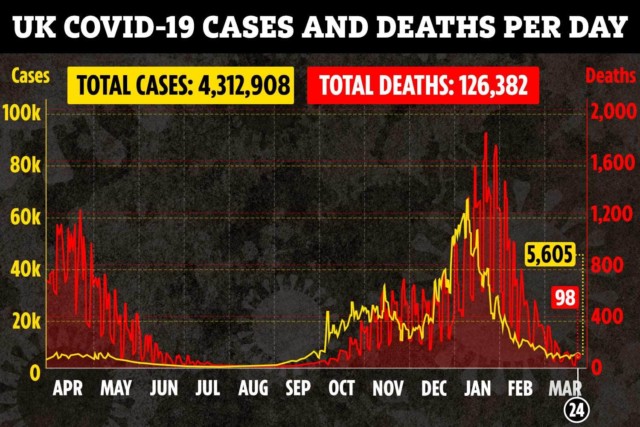BRUSSELS blinked last night over threats to ban exports of jabs to Britain after the PM warned its global reputation would be in tatters.
Crisis talks ended with both sides vowing to work together on a “win-win situation” after days of EU mayhem-making.
Read our coronavirus live blog for the latest news & updates…
The bloc is livid with AstraZeneca for providing jabs made in Europe to Britain, but the pharma giant says it is duty-bound because the UK got in first.
The row blew up over vaccines made at an AZ plant in the Netherlands, which can churn out up to five million vials a month.
Eurocrats argued they should get almost all of them because their rollout is going much worse than Britain — which was last night also facing an export ban from India.
Brussels announced moves yesterday morning to restrict exports to countries vaccinating faster than the bloc — a threat clearly aimed at the UK.
The EU also ordered a raid on a factory in Italy amid suspicions AZ was hoarding jabs bound for Britain.
But it turned out the 29million doses at the facility near Rome were actually destined for Belgium.
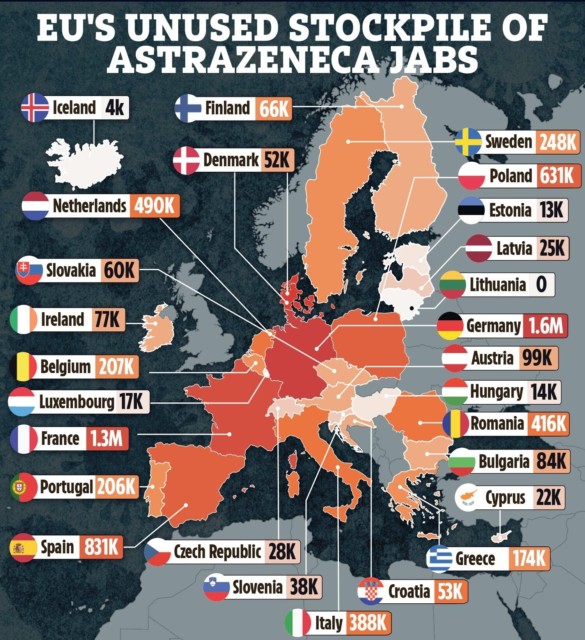
Brussels complains it has exported ten million doses to Britain without receiving any in reply.
It says the UK’s contract with AZ, which gives us first dibs, amounts to a “de facto export ban”.
But a climbdown came after Boris Johnson issued a stark warning to Brussels of considerable “long-term damage” to its reputation and investment hopes if it threw up barriers.
The PM hit out: “Vaccines are the product of international co-operation.
“I don’t think blockades of either vaccines or of ingredients for vaccines are sensible, and I think that the long-term damage done by blockades can be very considerable.”
He told a Commons committee: “Companies may look at such actions and draw conclusions about whether or not it is sensible to make future investments in countries where arbitrary blockades are imposed.”
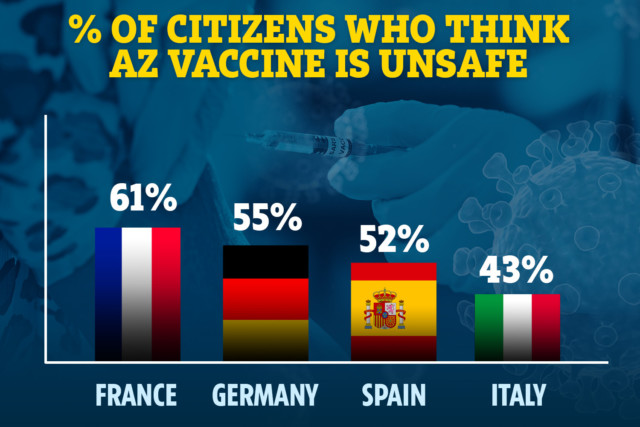
In follow-up calls to chief Eurocrat Ursula von der Leyen, he stressed the risk a vaccine war would pose to supply chains.
Germany’s Angela Merkel also urged Brussels to back away from threats to block Pfizer jabs headed for the UK as ingredients are made in Britain and could be blocked in retaliation.
Senior German MEP Bernd Lange, chairman of the European Parliament trade committee, also warned such a ban would mean “less vaccines for the EU”.
He said: “The Commission brings out the shotgun, but we may end up shooting ourselves in the foot.
“In the end we will mostly have losers and only one winner — the virus itself.”
‘WIN-WIN SITUATION’
In a joint statement issued last night, No 10 and the EU said: “We have been discussing what more we can do to ensure a reciprocally beneficial relationship between the UK and EU of Covid-19.
“We are working on specific steps we can take in the short, medium and long term to create a win-win situation and expand vaccine supply for all our citizens.”
An EU source said: “A win-win means both the UK and EU should share in getting less than anticipated.
“This is what is under discussion. We have to strike an agreement there and I really hope we can manage.”
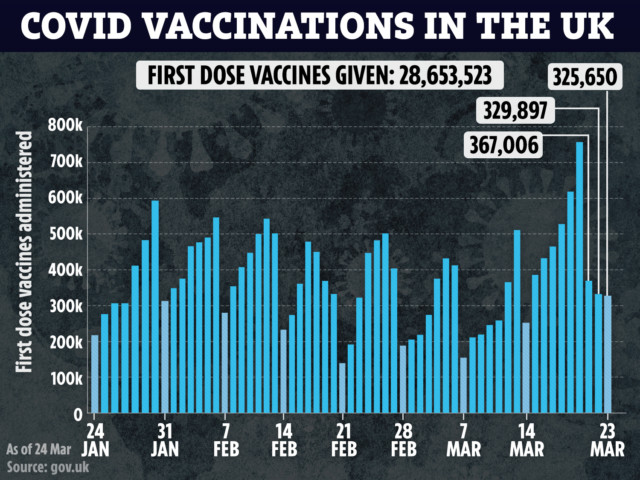
But last night it emerged the UK is also facing a shortfall in deliveries because India is blocking key shipments.
Five million Oxford/AstraZeneca doses were due to arrive from there next week.
But the shipment has been delayed by a month, with PM Narendra Modi’s government blamed.
With infections rising, the Serum Institute of India — the world’s biggest vaccine-maker — has been ordered to focus on domestic demand.
One source told news agency Reuters: “Everything else has taken a back seat, for the time being at least.”


